PROWAD Link announces winners of North Sea Sustainable Development Challenge
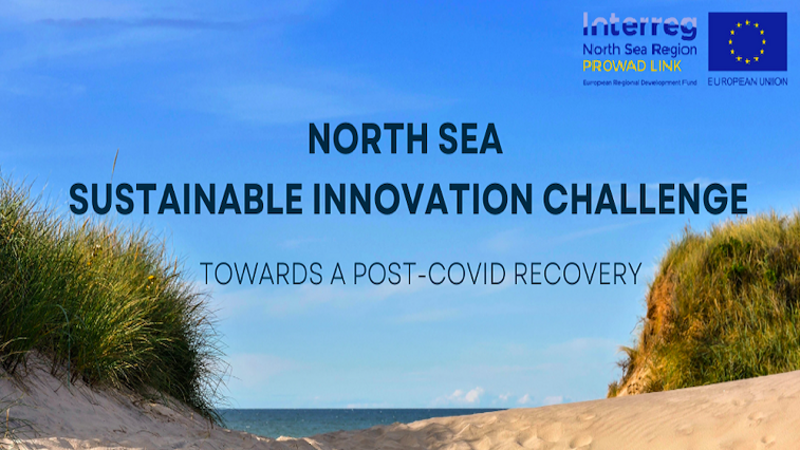
After months of spreading the news about the North Sea Sustainable Innovation Challenge, three innovation bootcamps and a careful selection of the submissions, PROWAD Link has now announced the winners.
"We have been happily surprised with the diverse set of submissions and applicants", says Tom Long, lead organisor of this challenge, University of Groningen. "Both cultural, environmental, social, economic and heritage challenges in the North Sea region have been addressed by our participants." Among the submissions, there were new tourism products and tools, innovative ways of managing, protecting and reusing natural resources such as water, and different approaches of supporting small and medium-sized business (SMEs) towards sustainable entrepreneurship.
The PROWAD Link partners thank everyone for distributing information about the challenge and especially to all participants submitting their ideas! Below, we introduce you to the winners - presented in a random order - and learn about their ideas and initiatives for sustainable development in the North Sea region.
The ‘Tourist Adventure Challenge’ - by Ting Xu
How can we encourage tourists to learn more about environmental protection and create a better connection between visitors and locals? The ‘Tourist Adventure Challenge’ might be part of the solution! Ting Xu, master student from Western Coast University of Applied Sciences in Heide, Germany, developed the idea to organize a map where tourists can take on adventure challenges during their trip. By achieving these challenges, tourists will get to explore local shops, products and areas. Much more to report about this exciting initiative when the support program will kick off!
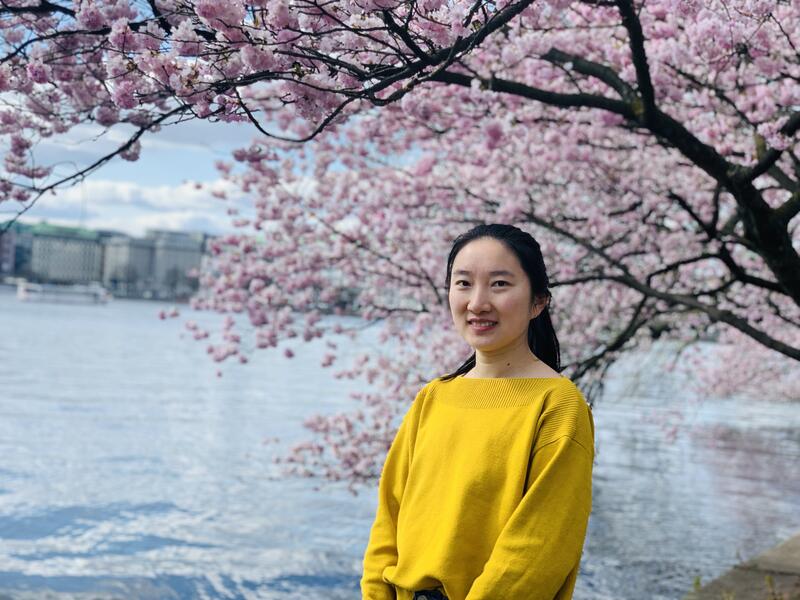 Ting Xu. Private photo.
Ting Xu. Private photo.
Eco-accounting for small entrepreneurs - by Brian van Es
How to run an economically ánd environmentally healthy company? Many small entrepreneurs have the wish to become more sustainable, but the problem is often the lack of time and knowledge. Brian van Es, master student at Campus Fryslân, wants to start his own business as eco-accountant that supports local and small entrepreneurs in the jungle of ecolabels, funding, subsidies, networks and opportunities and encourages sustainable business practices. With his experience in accounting and his knowledge in sustainable entrepreneurship, he wishes to become a one-stop-shop for small and local Frysian companies!
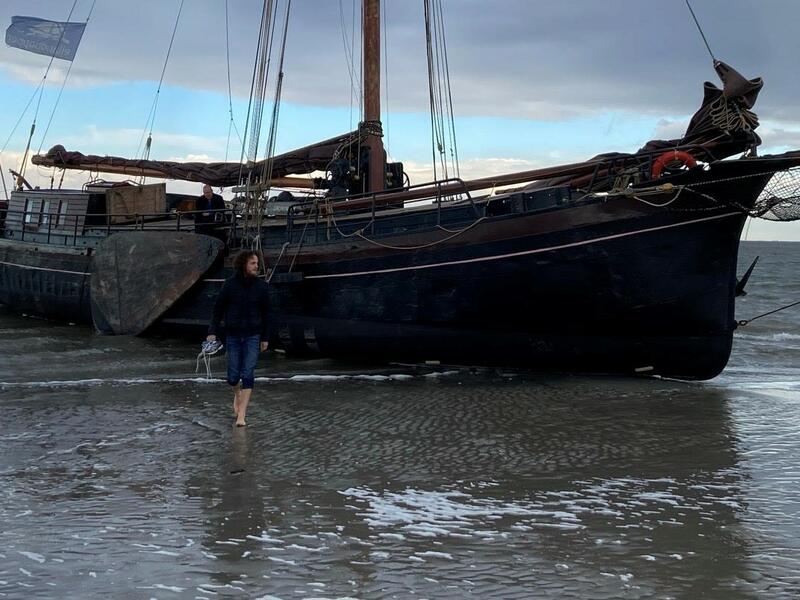 Brian van Es. Private photo.
Brian van Es. Private photo.
Turning tourist feedback into data visualization - by Martina Bradáčová & Naf Ahmed
Currently there is a lack of interaction with all types of visitors after their experiences in the Wadden Sea area. This limits the opportunity to deliver the full potential of the tourism products contributing towards sustainable development of the region. Therefore, Martina Bradáčová and Naf Ahmed have developed an online platform which transforms tourist experiences into data visualization through interactivity. The product will generate feedback data with visitors communicating their experiences through gamification methods. Martine and Naf have been part of the elite programme Erasmus Mundus 'European Master of Tourism Management', where they studied sustainable tourism development at three universities in Denmark, Slovenia and Spain during the past 1.5 years. They form the perfect team with a mix of project management skills and digital arts!
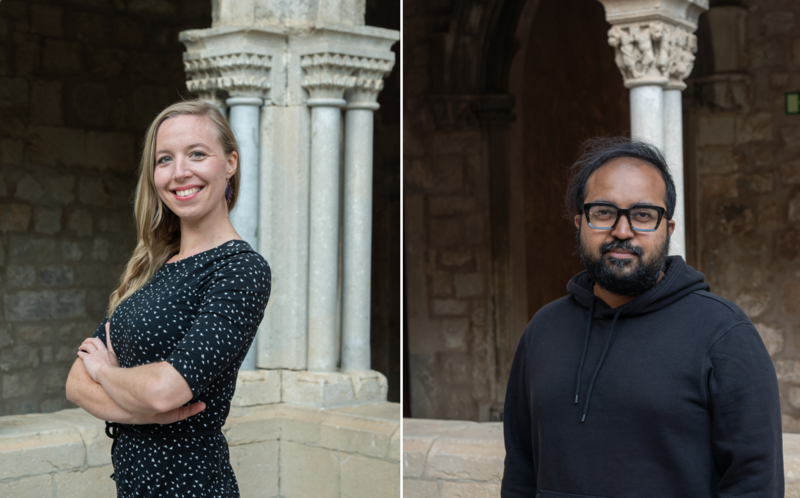 Martina Bradáčová and Naf Ahmed. Private photos.
Martina Bradáčová and Naf Ahmed. Private photos.
Photography course with mind and gut instinct - by Sylke Barkmann & Jörg Trittner
When you think of the Wadden Sea, most people will think of dunes, beaches and the perfect sundown. However, the region has so much more to offer in land- and seascapes! Sylke Barkmann, Wadden Sea national park guide and passionate photographer, and Jörg Trittner, professional photo designer, want to increase awareness among local residents and visitors for the often-overlooked coastal wetlands, such as salt marshes and moorland. By participating in their photography course, they hope to get people more connected with the diverse nature in the region. A mission that PROWAD Link supports!
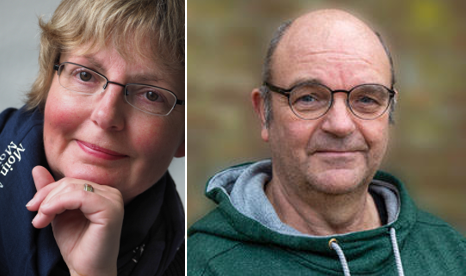 Sylke Barkmann and Jörg Trittner. Private photos.
Sylke Barkmann and Jörg Trittner. Private photos.
Digital storytelling for sustainable development - by Denise Speck
Storytelling has always been essential to humankind; But technological advancements stimulated a novel form of storytelling – digital storytelling – combining traditional oral techniques with multimedia tools which shed light on prevalent issues, foster awareness, and stimulate action. During Denise Speck’s research at Campus Fryslân, she revealed a theoretical gap in literature exploring the potential of digital storytelling within sustainable entrepreneurship and a lack of guidance on how such practices could be oriented towards creating sustainable development. Now she wants to use this possibility to further develop the concept’s potential to generate social, environmental, economic or heritage impacts for particularly small and medium sized companies in the North Sea region.
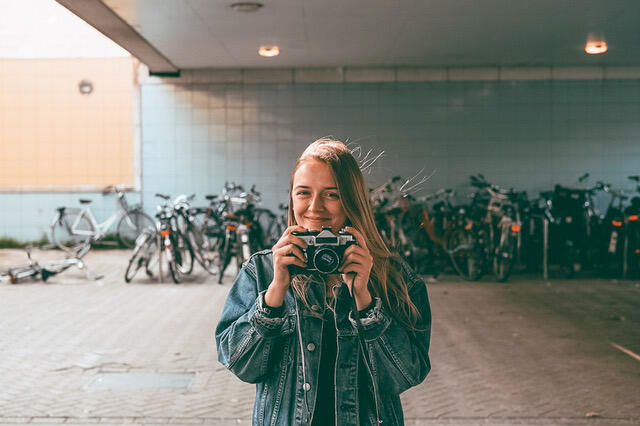 Denise Speck. Private photo.
Denise Speck. Private photo.
What is next?
The winners will be taking part in a support programme with PROWAD Link project partners and external experts who will offer training and coaching in business modeling, marketing strategy, budgeting and branding and will share interesting opportunities for funding, subsidies, events and networks. Starting in May 2022, the participants and project partners will together develop a personalized programme fitting the needs and aspirations of the winners and of the PROWAD Link project. "We are looking forward to working with these creative and ambitious winners during the upcoming months!", says Long.
Follow us on Twitter for more updates.
The Interreg VB project "PROWAD Link: Protect and Prosper: Benefits through linking sustainable growth with nature protection” aims to unlock the potential of natural areas as a driver for jobs and sustainable development in the pilot regions of the Wadden Sea (DK, D, NL), Geiranger Fjord (NO), Wash & North Norfolk Coast (UK). The project is co-funded by and carried out in the framework of the Interreg North Sea Region Programme under the Programme Priority 1 “Thinking Growth”. The programme is funded by the European Regional Development Fund (ERDF) of the European Union.
